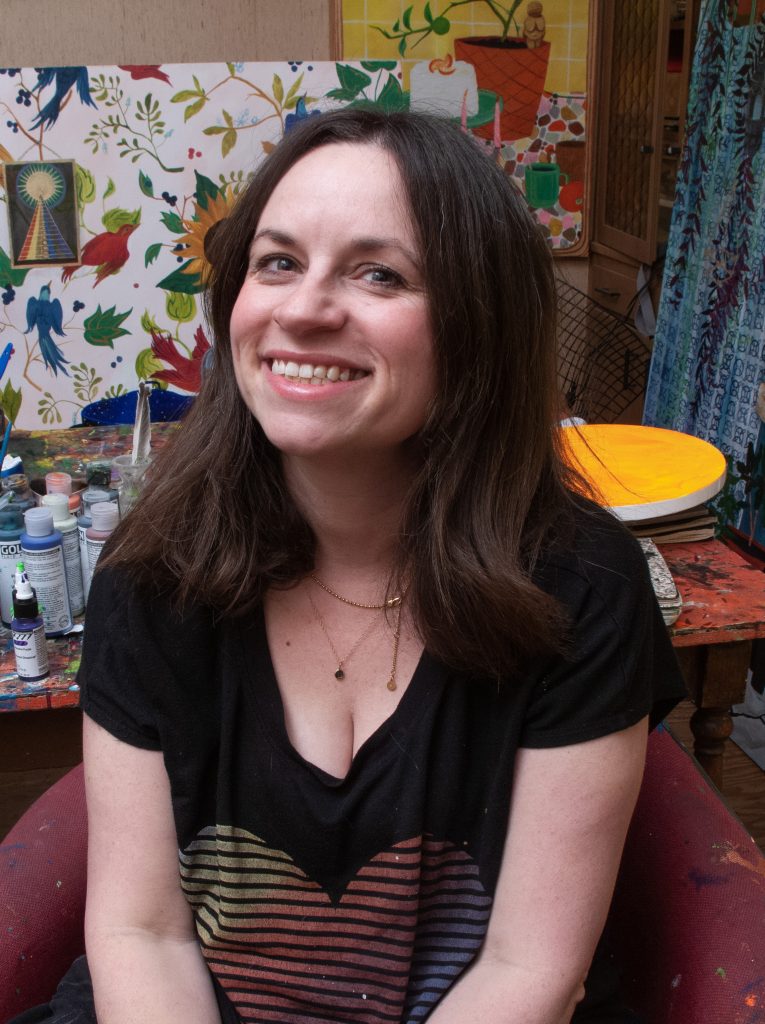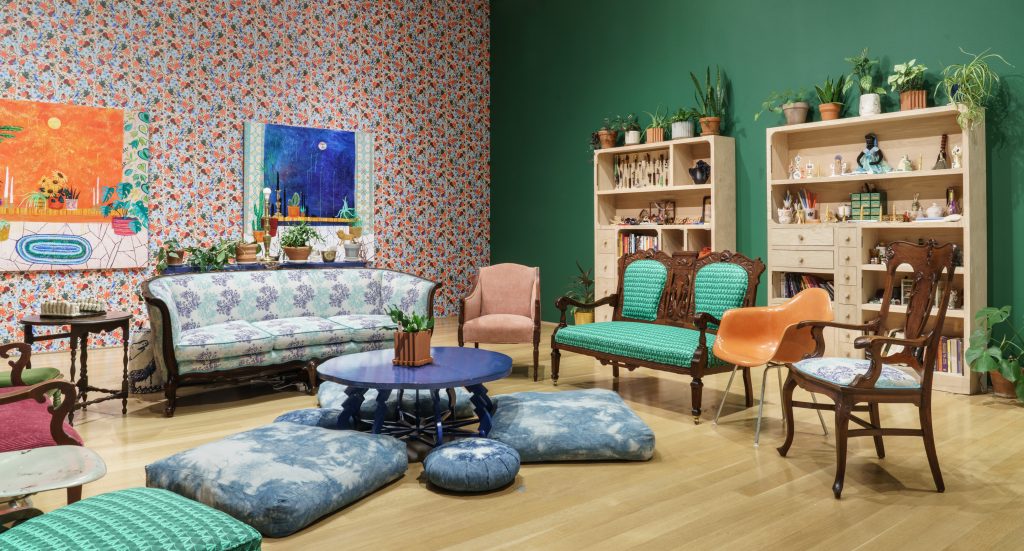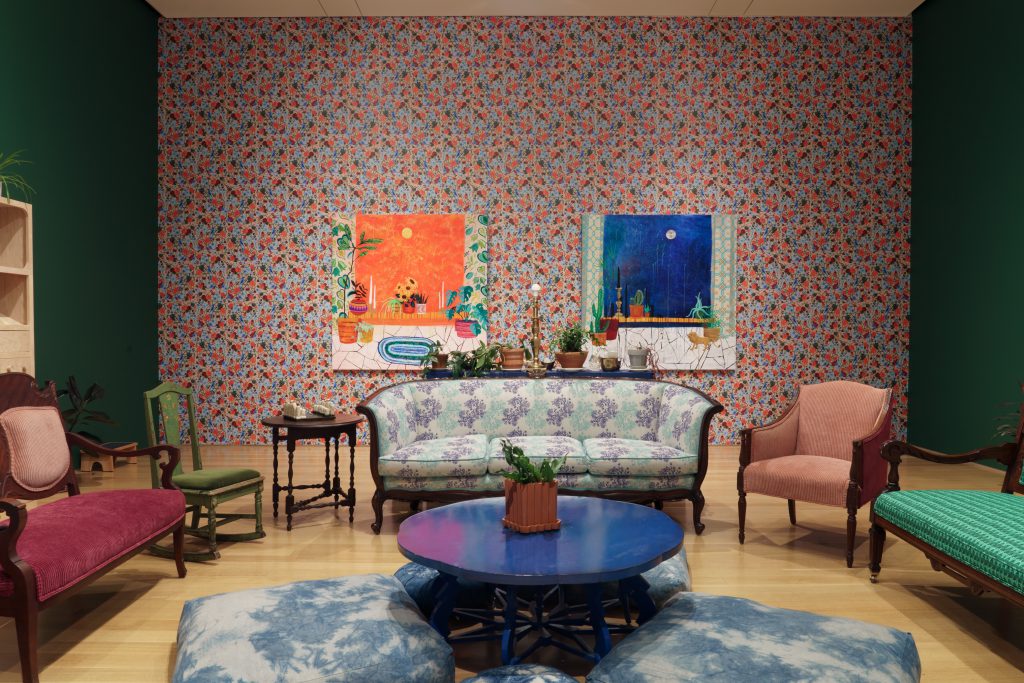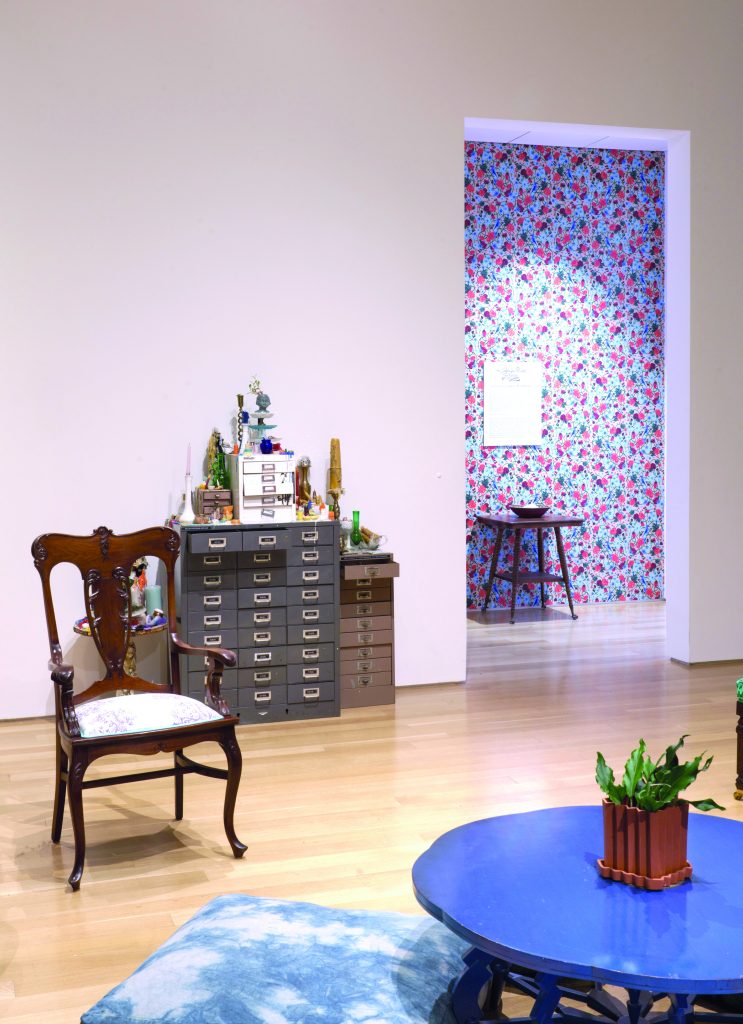Most of the time when we enter a museum, the script is clear: Look, don’t touch. Keep your voice down. Move along. But The Salon for Possible Futures at the Nerman Museum of Contemporary Art at Johnson County Community College invites something else entirely: linger, play, rummage, sit, sketch, swap, write, wonder.
Rather than keeping the art behind glass, this immersive installation — conceived by Artist and Curator Amy Kligman in collaboration with more than 20 other artists — transforms the gallery into an artistic living room built from the concept of community assemblage. It is a space where meaning is constructed from who is around us and what is in front of us, including antique chairs, repurposed ephemera, lovingly assembled drawers, and cabinets of curiosity.


It’s a style that resists cohesion, yet radiates intention. Amy said, “I like to think about the space as an anti-bunker. If a bunker is where you hunker down and horde your resources, this is the opposite of that.”
The Salon is both deeply aesthetic and deeply functional. There is custom wallpaper and upholstered seating, but also cabinets packed with magazines, handwritten notes, tools, books, and prompts. The space is divided into four thematic corners: Sustainability, which poses the question of how we can create an environment we can actually live in longer; Community, focused on the relationships we build and keep; Histories, a place for exploring utopias and dystopias, real and imagined; and Magic, which reclaims ritual as a kind of power. “I believe that ritual and beauty can exist in a place without dogma,” Amy said. “I am trying to welcome a certain kind of thought, and create space for that.”

During my visit, the space was alive with quiet activity. A student with AirPods tapped steadily on her iPad; next to her, another young person scribbled furiously into a lined notebook. Two children played a board game they found in a cabinet, working together to sort tokens and invent rules. A grandmother looked perfectly at home, curled into the couch with no intention of rushing anywhere. It was moving to see how the space didn’t just invite interaction, it relied on it. “By making this a functional space,” Amy said, “it’s an invitation to get closer to the things you interact with on a daily basis, and to appreciate them on a deeper level.”
That philosophy of intimacy and reclamation extends into the workshops hosted in the Salon, one of its most engaging features. So far, visitors have learned how to letterlock secret notes, make pocket charms for good luck, and swap native plant seeds to take home and plant. There has been a utopia/dystopia movie night (think slumber party for dreamers), a tabletop game day with local indie game developers, and a sustainability-themed book exchange. Guests are invited not just to take, but to give. “It is cool to see how people find themselves in the space,” Amy said, “and how they bring other people in.”

From 2015 to 2024, Amy served as executive artistic director of Charlotte Street Foundation, fostering emerging artists and experimental projects. Before that, she co-founded Plug Projects, a curatorial collective that emphasized dialogue and critique. “As an artist, a curator, as someone who has run art spaces for some time,” she said, “I’m really interested not just in the making of art, but how people experience it.”
That might be the most poignant thread through The Salon for Possible Futures, its reverence for experience. It is not a utopia in itself, nor does it pretend to have all the answers. But it invites us to sit with the desire for something better. As Amy put it, “Nobody has a unified idea of what a perfect future is, but we still desire a better tomorrow. This space tries to reconcile these two notions.”
The Salon for Possible Futures is on view on the second floor of the Nerman Museum of Contemporary Art at Johnson County Community College until December 21, 2025.